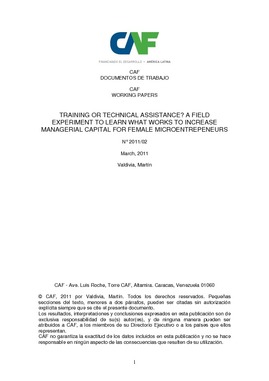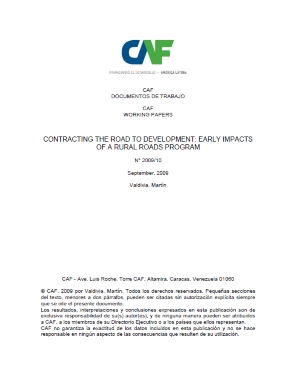Impact evaluation of innovation policy in Brazil
Resumen
This paper aims to assess the innovation policy in Brazil after the edition of the innovation law, in 2004, and the fiscal subsidies to innovation law, in 2005. We use data from the Brazilian Innovation Survey and from the Annual Industrial Survey to measure the effect of the use of policy instruments on private R&D disbursements and on productivity. The report finds a positive effect of the innovation policy on private R&D when all instruments are pooled together, that is, innovation policy resources may be viewed as complementary to private resources and may be viewed as successful in fostering innovative effort. When separate instruments are analyzed, we find that direct intervention instruments such as credit for R&D investments and economic grants work very well. The effect of fiscal subsidies is not straightforward, however. It seems to increase the probability to perform R&D disbursements but does not have effect on the intensity of these disbursements. Other instruments such as credit for the acquisition of equipment and machinery and credit for the enhancement of university-industry linkages do not perform well. Policy instruments had an overall positive impact on labor productivity. Most instruments have maintained a positive and significant impact on productivity over all equations, with the sole exception of risk capital.
Materia
País / Región
Fecha
2018-10-22Citar de esta publicación
Item perteneciente a la Colección
Autor
Rocha, C.Items Relacionados
Public financial support and innovation in Colombian manufacturing firms
We evaluate the impact of public financial support, both subsidies and credit, on different types of innovation in Colombian industry. We compare it ...
Training or technical assistance? A field experiment to learn what works to increase managerial capital for female microentrepeneurs
This study evaluates the impacts of a business training program serving female microentrepreneurs in Lima that have previously benefited with the titling ...
Contracting the Road to Development: Early Impacts of a Rural Roads Program
We studied here the early impacts of the Peruvian rural roads program (RRP) that is characterized by the contracting of private local firms for the ...





